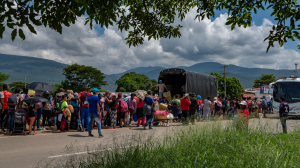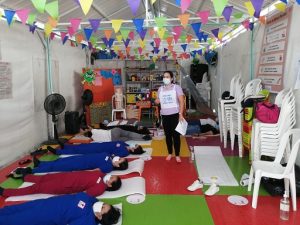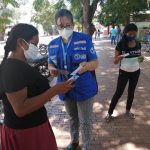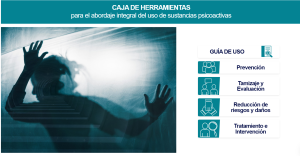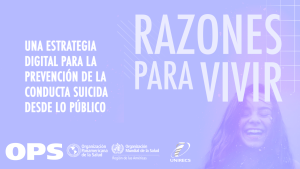Toolbox
Mental Health Intervention and Psychosocial Support (MHPSS) for Mixed Migratory Flows
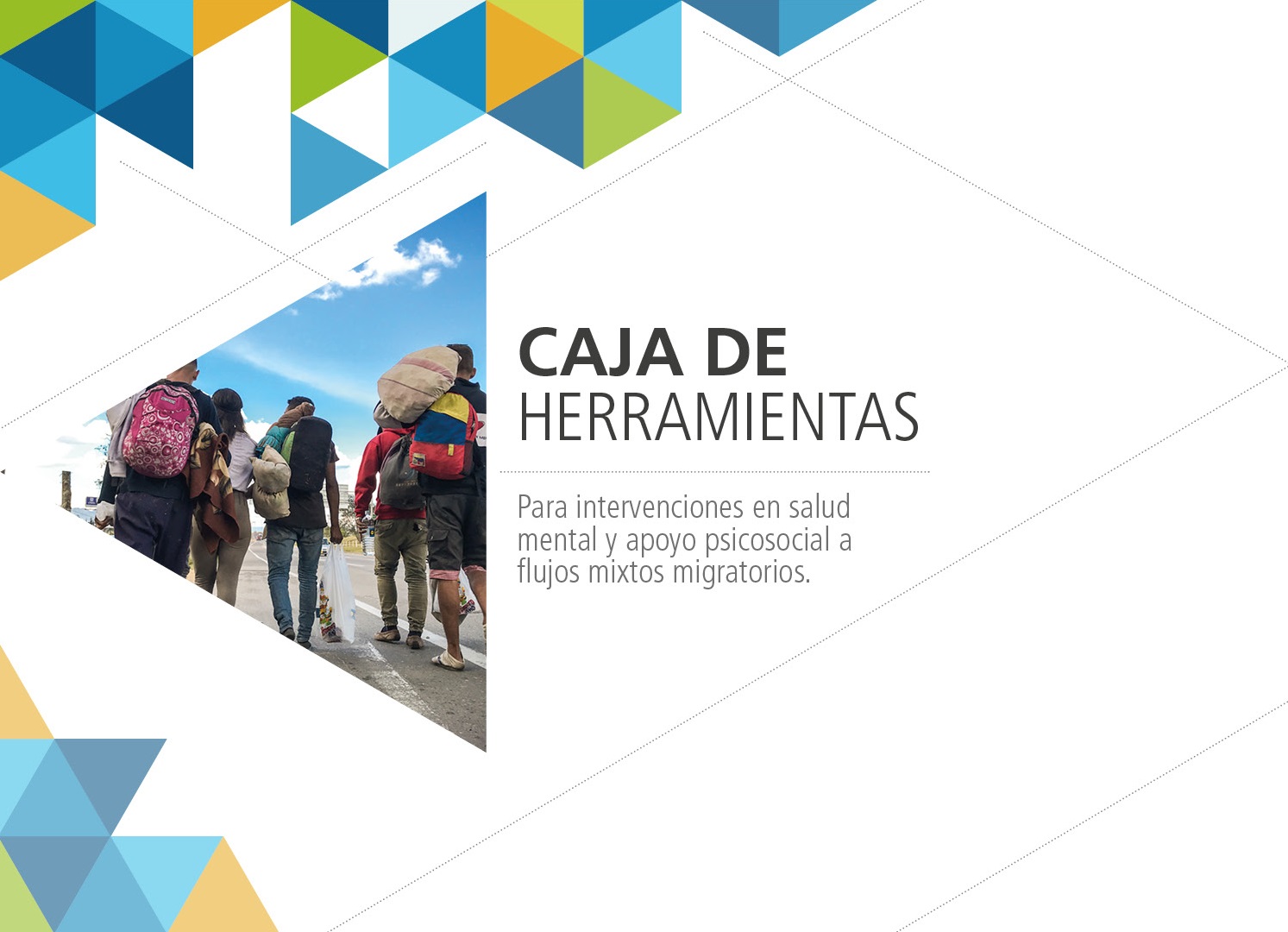
INTRODUCTION
Given the increase in mixed migratory flows to the country, and their undoubted impact on the mental health of individuals, families and communities involved, with emotional and adaptive consequences, it is important to mitigate this with adequate Mental Health and Psychosocial Support Services (SMAPS). Bearing in mind that this is a complex situation, it is necessary to implement strategies to respond to this phenomenon. This Toolbox is a contribution that seeks to respond to this need through a compilation of materials designed by multiple actors, such as agencies of the United Nations System, international NGOs, government agencies and academia, based on scientific evidence, widely used in humanitarian settings, which allow for practical planning, intervention and monitoring of the work done with the migrant population arriving in the country.
Initial Attention
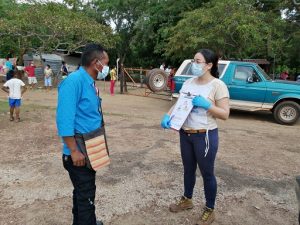
General identification of individual, socioeconomic and migratory status information of individuals, families and migratory nucleus.
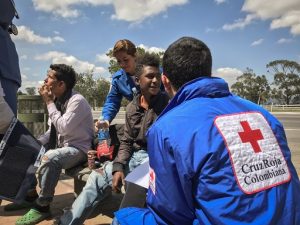
Rapidly administered tests for the identification of risk of psychoactive substance use, alcohol abuse and/or general mental health status
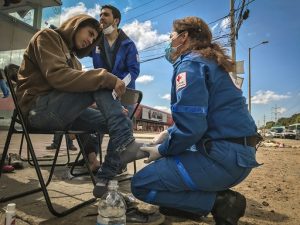
Delivery of information according to needs identified in the characterization, screening or based on the population's concerns, programs and services identified in the territory are suggested.
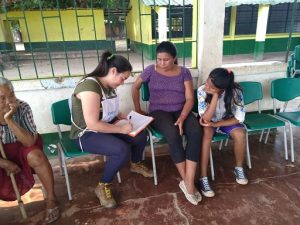
Based on the identified needs of the population, it is oriented to general and/or specialized mental health programs and services, according to the institutional offer of the territory.
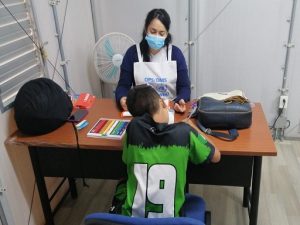
Brief intervention that seeks to stabilize the person emotionally after having suffered an emergency or a crisis that affects his or her emotional state.
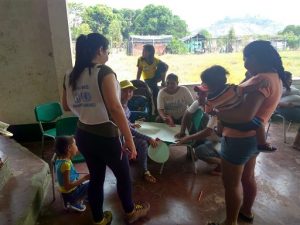
Reestablishment of Family Contacts (RCF)
Strategy to activate the search for missing persons and provide psychosocial support to those affected.
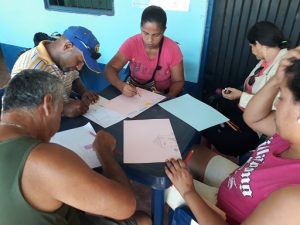
Strategy to identify and strengthen social relationships that potentially provide support to people in times of need.
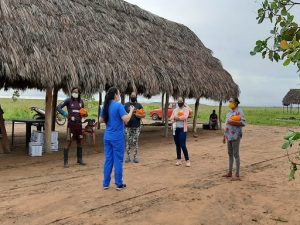
Emotional management and resilience
Process of recognition, understanding and development of actions that allow a better management of emotions, achieving learning that favors the response and recovery in difficult situations.

Spaces for social contact with people who have experienced similar situations, facilitating the sharing of experiences, solving common problems with their own resources, and in general providing mutual support.
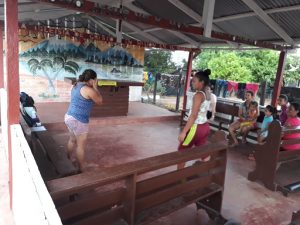
A simple and practical tool to support health services in humanitarian emergencies in a multisectoral manner, in order to detect and treat mental, neurological and psychoactive substance use disorders.
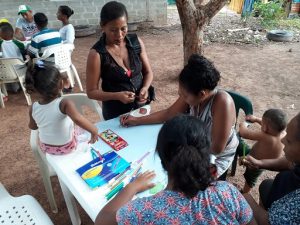
Psychoeducation and recreational activities
Training processes to raise awareness, inform and generate skills that promote mental health protection.
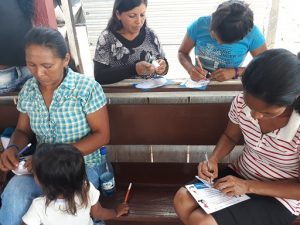
Actions to avoid or mitigate unjustified unfavorable evaluations of individuals or social groups due to their characteristics or behavior.
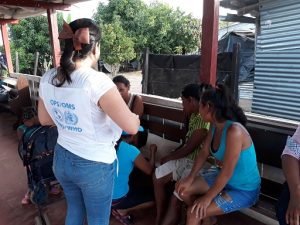
Actions to prevent and address the emotional consequences of the intentional use of physical force or excessive power against family members or persons of different gender, which result in the likelihood of psychological harm, injury, death, deprivation or maldevelopment.
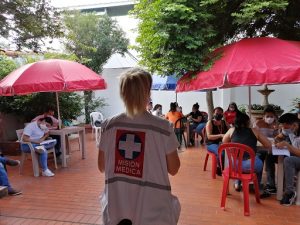
Set of actions oriented to emergency response teams to favor their emotional stability and the continuity of the operation.
For the curious...
Más Cajas de herramientas
La caja de herramientas para el abordaje integral del uso de sustancias psicoactivas, es un espacio dedicado a aquellas personas que de manera personal han estado o están expuestos al consumo de sustancias psicoactivas (SPA), igualmente, se dirige aquellas personas de la comunidad, familias, colegios, universidades, barrios y grupos sociales que requieran de herramientas prácticas que aporten a la mitigación y prevención de consumo de SPA en su círculo social.
Razones para Vivir, es una selección de recursos, herramientas y metodologías, con fuerte evidencia técnica, que cubren todo el espectro del cuidado en salud mental: la promoción la detección y atención de riesgos y su mitigación, intervenciones breves para problemas, y propuestas diversas para la recuperación del bienestar, con gran énfasis en los contextos comunitarios.
For further information, please contact:
Dr. Luz María Salazar - salazarluz@paho.org
Dr. Mireya Gutiérrez Robayo - miyeg19@gmail.com
Dr. Helena Johanna Vélez Botero - hjvelezb@unal.edu.co
Design
Ana Lorena Niño Téllez - bvscolombia@fucsalud.edu.co




